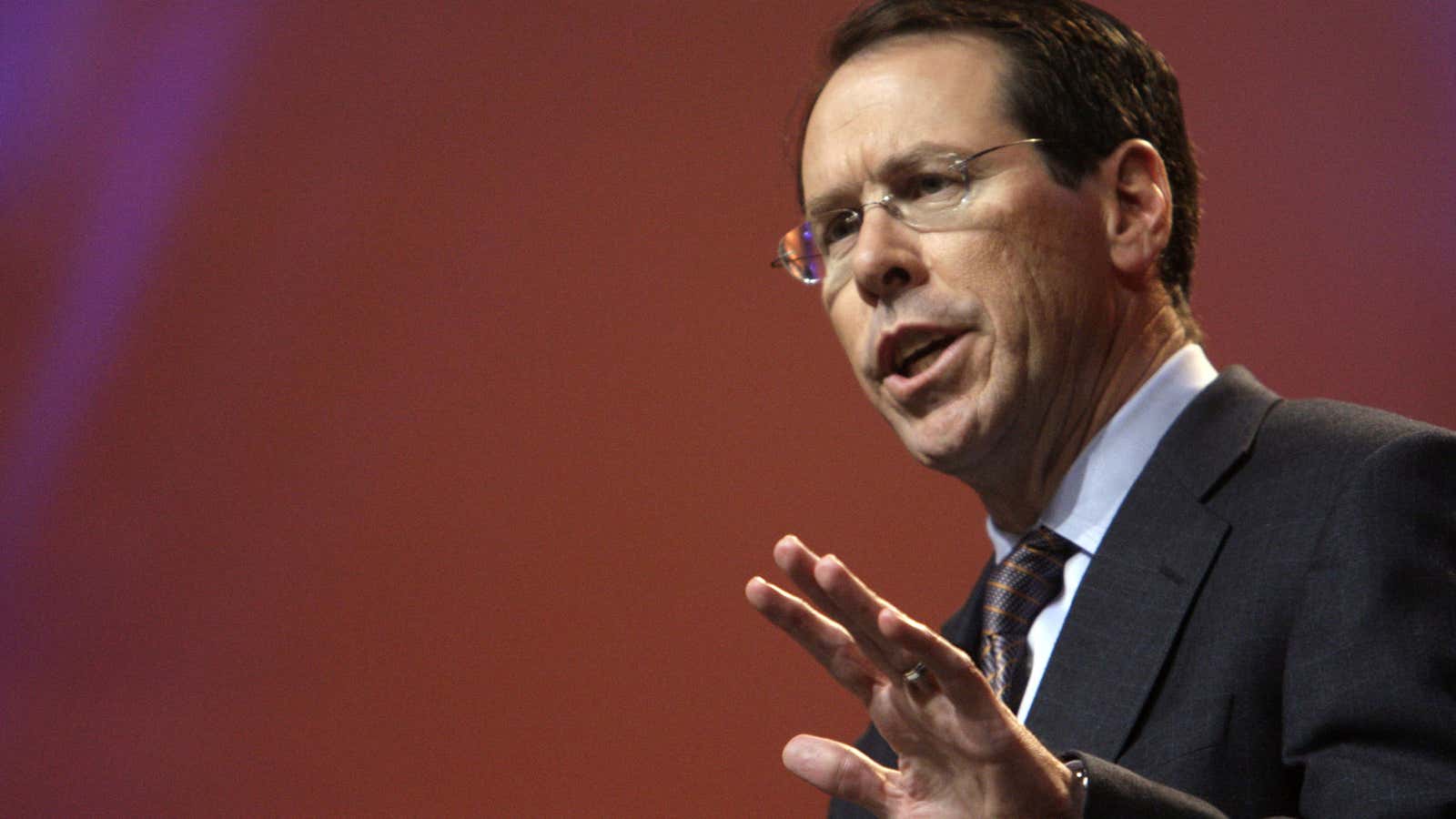Long, long ago, when the internet was but a gleam in some futurist’s eye, people got all their phone service, and their telephones, from one company. It was called AT&T and as long as anyone could remember it had operated as a regulated monopoly with total control over communications service and technology in the U.S. It was a dull business, but it was a cash cow. It employed one million people.
But the lords at AT&T were restless. They wanted freedom from a 1956 consent decree that kept them out of a shiny new business called computers. It was the 1980s, and they could see the future: One day people would send data, video, photos, and text over a distributed computer network. To get into this business, the AT&T lords needed to sell people not just telephones, but computers.
So they made a deal with the government. In return for the government dropping an antitrust lawsuit that would have forced AT&T to give up its phone and nascent computer manufacturing division, AT&T would spin off its local phone operations, the so-called Baby Bells. Then it would be free to thrive in the new age.
Things didn’t quite work out that way. But the arguments made today in the US Department of Justice’s latest suit against AT&T echo those that led to the company’s breakup in 1984. Essentially, in blocking the $108 billion merger of AT&T and TimeWarner, the justice department is declaring, once again, that power in one market will enable AT&T to crush competition in another.
In the suit, the justice department argued that AT&T’s proposed ownership of TimeWarner would constitute the sort of vertical merger that could violate antitrust laws. AT&T currently provides video service to 25 million households through DirecTV, its fiber optic and copper lines, as well as its DirecTV Now service. TimeWarner currently owns the studio and networks of CNN and HBO, which includes the hugely valuable rights to “Game of Thrones,” among others assets.
A proposed new company would be both a video content producer and in control of a major means of video distribution. Therefore, the justice department argued in its filing, it would have both “the incentive and ability to substantially lessen competition by withholding or raising the price for that input.” In other words, the new company could stifle new competition in video distribution, such as Sling TV, by withholding the valuable content, like “Game of Thrones,” that any other video distribution network would need to succeed.
The suit comes in the midst of president Donald Trump’s ongoing public battle against CNN, which he has falsely claimed is broadcasting “fake news.” It also comes on the heels of a conflicting Trump administration decision that encourages media mergers. On Nov. 16, the Federal Communications Commission rolled back rules dating to the 1970s on media competition that paves the way for pro-Trump media outlet Sinclair Broadcast Group to complete a $3.9 billion deal for Tribune Media.
Sinclair currently requires its 193 television stations to broadcast segments by former White House spokesman Boris Epshteyn, who has several shows with Sinclair, nine times a week. After the Tribune deal goes through, Sinclair will have television stations in three-quarters of US households. The FCC argued that removing the decades-old rule “eight voices rule,” which required companies controlling a television broadcast station to prove there are eight other independent news outlets in any market before they could to own a second station, allowed for “greater opportunity to compete in the digital age.”
Heather Timmons contributed reporting.
